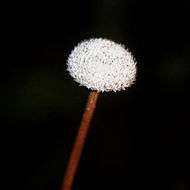Eriocaulaceae
The Eriocaulaceae are a family of monocotyledonous flowering plants in the order Poales, commonly known as the pipewort family. The family is large, with about 1207 known species described in seven genera.[3] They are widely distributed, with the centers of diversity for the group occurring in tropical regions, particularly the Americas. Very few species extend to temperate regions, with only 16 species in the United States, mostly in the southern states from California to Florida, only two species in Canada, and only one species (Eriocaulon aquaticum) in Europe. They tend to be associated with wet soils, many growing in shallow water. This is also reported from the southern part of India and the regions of Western Ghats hot spots.
| Eriocaulaceae | |
|---|---|
.jpg) | |
| Eriocaulon decangulare 1832 illustration[1] | |
| Scientific classification | |
| Kingdom: | Plantae |
| Clade: | Tracheophytes |
| Clade: | Angiosperms |
| Clade: | Monocots |
| Clade: | Commelinids |
| Order: | Poales |
| Family: | Eriocaulaceae Martinov[2] |
| Genera | |
|
See text | |
The species are mostly herbaceous perennial plants, though some are annual plants; they resemble plants in the related families Cyperaceae (sedges) and Juncaceae (rushes), and like them, have rather small, wind-pollinated flowers grouped together in capitulum-like inflorescences.
- Genera
- Actinocephalus
- Comanthera
- Eriocaulon - pipewort
- Lachnocaulon - bogbutton
- Leiothrix
- Mesanthemum
- Paepalanthus
- Rondonanthus
- Syngonanthus
- Tonina
See also
References
- "From: Curtis's botanical magazine; or flower garden displayed. London, 1832, volume 59 (plate 3126)". Archived from the original on 2006-10-23. Retrieved 2014-08-12.
- Angiosperm Phylogeny Group (2009). "An update of the Angiosperm Phylogeny Group classification for the orders and families of flowering plants: APG III". Botanical Journal of the Linnean Society. 161 (2): 105–121. doi:10.1111/j.1095-8339.2009.00996.x. Archived from the original (PDF) on 2017-05-25. Retrieved 2013-06-26.
- Christenhusz, M. J. M.; Byng, J. W. (2016). "The number of known plants species in the world and its annual increase". Phytotaxa. Magnolia Press. 261 (3): 201–217. doi:10.11646/phytotaxa.261.3.1.
External links
 Eriocaulon decangulare flowerhead
Eriocaulon decangulare flowerhead